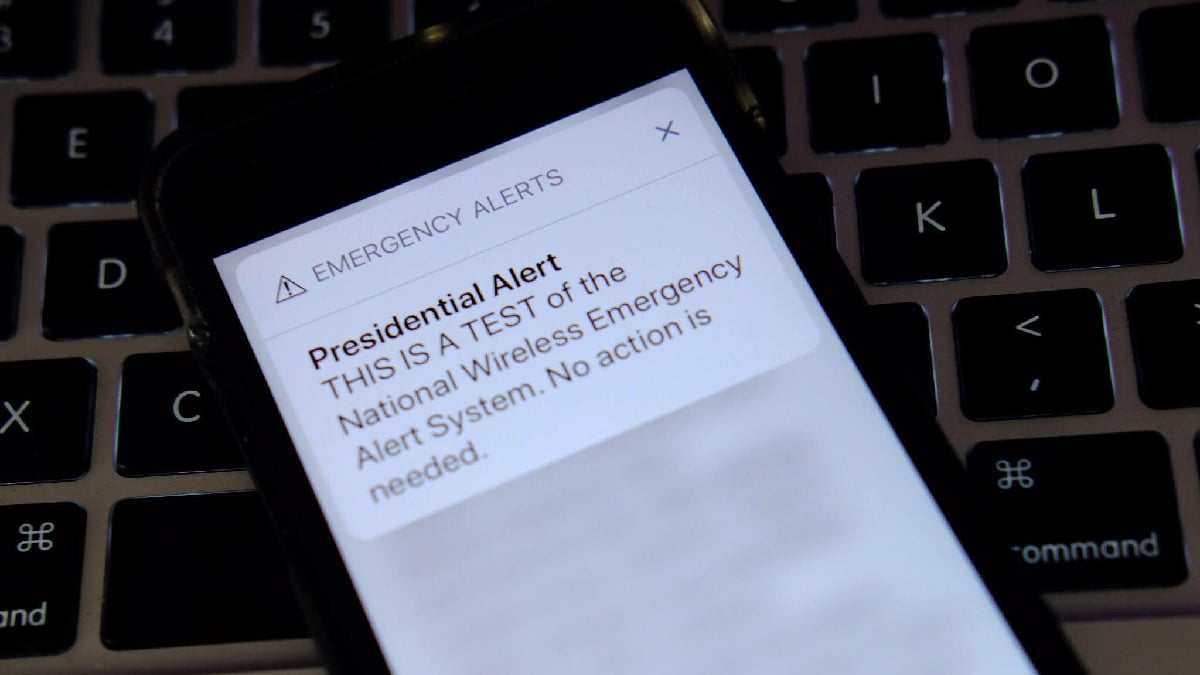A nationwide test of the federal emergency alert system is scheduled for today, Oct. 4, marking the seventh test of this sort in the history of the United States.
The test is scheduled for the early afternoon, in most U.S. timezones, and will hit all wireless cellphones, televisions, and radios to ensure our warning systems remain effective. Expect a surprise message to appear on your devices at 2:20pm ET, which is 1:20pm CT, 12:20pm MT, 11:20pm PT, and over in Alaska and Hawaii, at 10:20am and 8:20am, respectively.
Why will there be a national emergency alert test on Oct. 4, 2023?
The test requires no action from the public, as it is merely intended for maintenance. Our emergency preparedness, like anything else, requires upkeep, and this is just one way the government ensures that — should anything happen — the public will be ready.
Its also not the first test of its type. We’ve put out similar tests six times before, between 2011 and 2021, and more will follow in the future, likely adding in fresh devices as technology continues to develop.
When was the last emergency alert test?

It may seem like an odd concept, but almost anyone with a cellphone has already lived through an emergency alert system test. The last occurred just a few years ago, on Aug. 11, 2021. It’s been ongoing, every two years since it began in 2011, so we should expect the next to follow in fall 2025.
The test will last around 30 minutes in total, but each device should only get one quick notification. On wireless devices, which are likely to be the dominant devices, people should expect a simple text message that reads “THIS IS A TEST of the National Wireless Emergency Alert System. No action is needed.”
The test won’t interrupt your phone calls or cancel any meetings — it’s simply intended to ensure everything is working as expected. The minor interruption will barely be a blip on most people’s radars, but continuing to maintain our emergency alert systems is vital, and could easily save lives someday.

